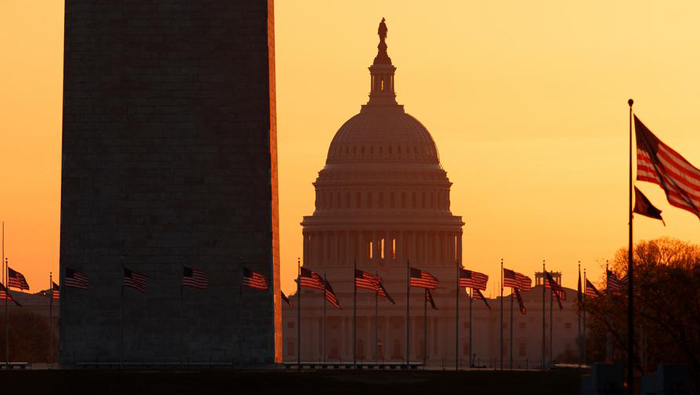- International News
- Friday-2021-01-22 | 11:46 am

Nayrouz News Agency :
US President Joe Biden's decision to re-join the Paris Agreement has been welcomed worldwide including by the United Kingdom, France and Japan.
Lauding Biden's decision, UK Prime Minister Boris Johnson on Thursday said in a tweet, "President @JoeBiden rejoining the Paris Agreement is hugely positive news. In the year we host @COP26 in Glasgow, I look forward to working with our US partners to do all we can to safeguard our planet." French President Emmanuel Macron congratulated Biden and said, "To @JoeBiden and @KamalaHarris [US Vice President]. Best wishes on this most significant day for the American people! We are together. We will be stronger to face the challenges of our time. Stronger to build our future. Stronger to protect our planet. Welcome back to the Paris Agreement."
Similarly, Japanese Foreign Minister Toshimitsu Motegi has welcomed Biden's decision.
"Japan is seeking to reduce greenhouse gas emissions to zero by 2050 and build a carbon-neutral society, and this course is in line with the US policy," Sputnik quoted him as saying.
He further said, "Our country, in cooperation with the United States, including in the field of advanced technologies, will continue to lead the international community to build a carbon-neutral society, as required by the Paris agreement."
Hours after being sworn-in, President Biden had signed a dozen executive orders. He had also announced that the United States plans to re-enter the Paris climate accord, the landmark international agreement signed in 2015 to limit global warming.
The United States under the Trump administration had abandoned the agreement late last year.
"We are going to combat climate change in a way we have not done so far," Biden said.
According to experts, Biden's action on Paris sends a strong message that the US is prepared to cooperate in the fight against climate change and to reclaim the leadership role it once held.
The Paris Agreement is a legally binding international treaty on climate change. It was adopted by 196 Parties at COP 21 in Paris on December 12, 2015, and entered into force on November 4, 2016. It aims to limit global warming to well below 2, preferably to 1.5 degrees Celsius, compared to pre-industrial levels.













